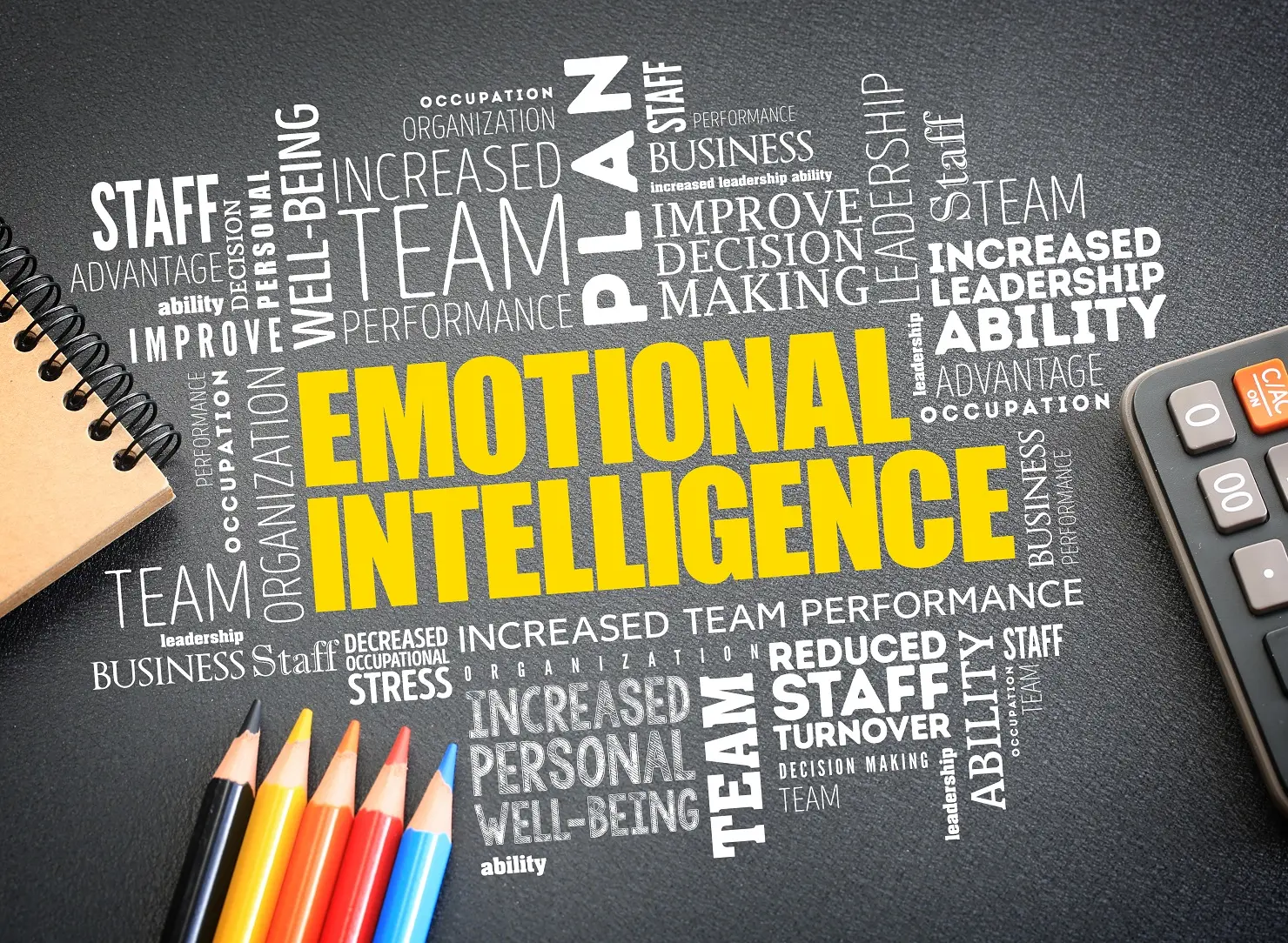5 Steps to Improve Your Emotional Intelligence
Emotional intelligence is a critical factor in personal and professional success, yet it is often overlooked in favor of more traditional measures such as IQ. Let's find out what emotional intelligence is and why it is significant.
Emotional intelligence is a skill that allows you to recognize and interpret your emotions, which helps you manage how you interact with others. This includes understanding how different behaviors may affect them or impact the relationship. It involves self-awareness, self-regulation, empathy, and social skills. These skills are crucial for building and maintaining strong personal and professional relationships and navigating social situations with grace and effectiveness.
In the workplace, high emotional intelligence has been linked to increased job satisfaction, better leadership skills, and improved team performance. Emotionally intelligent individuals can create a positive work culture, resolve conflicts effectively, and build strong teams.
So, how can you improve your emotional intelligence? In this article, we'll discuss five practical steps to boost your emotional intelligence and achieve tremendous success in all areas of your life.
WHAT IS EMOTIONAL INTELLIGENCE?

Emotional intelligence describes the ability to understand and manage emotions from your point of view and that of other people. It will help you recognize, understand and control how your behavior may affect others. It involves self-awareness, self-regulation, empathy, and social skills.
Self-awareness is the foundation of emotional intelligence. It involves recognizing and understanding your emotions as they happen, including being aware of your strengths and weaknesses and your values and beliefs. Self-awareness lets you know your motivations and behaviors and make more thoughtful decisions.
Self-regulation is the innate ability to manage emotions in a healthy, positive way. This includes controlling your impulses, delaying gratification, and coping with stress. It also involves adapting to changing situations and returning from failures or setbacks.
Empathy is a person's ability to understand and share the emotion that someone else is experiencing. It often entails putting yourself in their shoes and viewing things from their perspective. Empathy is crucial for building and maintaining solid relationships, as it allows you to connect with others on a deeper level.
Social skills are tools that help us interact with others effectively. It includes communication skills, such as listening actively and expressing yourself clearly, and conflict resolution skills, such as the ability to handle disagreement constructively. Strong social skills are essential for building and maintaining positive relationships with others.
WHY IS EMOTIONAL INTELLIGENCE IMPORTANT?
Emotional intelligence is essential for several reasons. First and foremost, it helps us understand and manage our emotions, which is crucial for our overall mental health and well-being. It also enables us to communicate effectively and interact with others, which is essential for building and maintaining positive relationships.
In the workplace, high emotional intelligence has been linked to increased job satisfaction, better leadership skills, and improved team performance. Emotionally intelligent individuals can create a positive work culture, resolve conflicts effectively, and build strong teams.
In addition to the benefits mentioned above, emotional intelligence is essential because it allows us to navigate social situations more easily. It helps us to understand the emotions and intentions of others, which enables us to respond appropriately and build stronger connections with others.
Emotional intelligence is also related to mental health and overall well-being. Recognizing and managing our emotional health can help us reduce stress and anxiety and maintain a positive outlook.
Finally, emotional intelligence is essential for personal and professional success. It is a critical factor in leadership and teamwork and has been shown to predict success in various roles and industries. Emotionally intelligent individuals are often more successful in their careers, as they can build strong relationships, communicate effectively, and navigate challenging situations gracefully.
HOW TO IMPROVE EMOTIONAL INTELLIGENCE

Now that we've established why emotional intelligence is essential let's delve into some practical ways to improve it:
- Practice self-awareness: Pay attention to your emotions and how they influence your thoughts and behaviors. Consider keeping a journal to track your emotions and their triggers.
- Develop self-regulation: Once you're aware of your emotions, work on managing them effectively. This might involve deep breathing exercises, taking breaks to calm down, or finding healthy ways to cope with negative emotions.
- Cultivate empathy: Try to see things from other people's perspectives and show understanding of their emotions. This can be as simple as actively listening to others and trying to understand their origin.
- Improve social skills: Practice good communication and conflict resolution skills. Seek out opportunities to collaborate with others and work on building solid relationships.
- Continuously learn and grow: Emotional intelligence is not a fixed trait but something that can be developed and improved over time. Don't be afraid to seek new experiences and learning opportunities that can help you grow emotionally.
Here are some additional ways to improve your emotional intelligence:
- Seek feedback: Ask for feedback from friends, family, and colleagues to gain insight into how you come across to others. It is a great way to comprehend your emotions and behavioral patterns more accurately. This can help you identify what you would like to change and improve as a person.
- Practice mindfulness: Mindfulness is focusing your attention on the present moment and accepting it without trying to change anything. It's been shown to help people become more self-aware and manage their emotions better. Consider incorporating mindfulness techniques in your life, like meditation, yoga, or any other mindful activity that works for you.
- Learn from role models: Look for models who exhibit solid emotional intelligence and observe how they handle themselves in different situations. What do they do that you could adopt?
- Practice perspective-taking: Self-reflection is essential to put yourself in others' shoes and think about their perspective. This can help you to develop empathy and improve your social skills.
- Continuously learn and grow: Emotional intelligence is not a fixed trait but something that can be developed and improved over time. Don't be afraid to seek new experiences and learning opportunities that can help you grow emotionally.
- Engage in self-care: Take care of your health by getting your recommended sleep and eating healthy meals. Engage in activities that you find pleasurable, like spending time with friends or going on a hike. This will help you to manage your emotions better and maintain a positive outlook.
Conclusion
Emotional intelligence is a vital skill that can profoundly impact your personal and professional life. It helps you to understand and manage your own emotions, as well as to communicate and interact with others effectively. By practicing self-awareness, self-regulation, empathy, and social skills, you can improve your emotional intelligence and achieve tremendous success in all areas of your life. Emotional intelligence is essential for self-development and can help you to live a happier life. Whether you want to improve your relationships, advance in your career, or achieve personal goals, EI is an investment for the future.